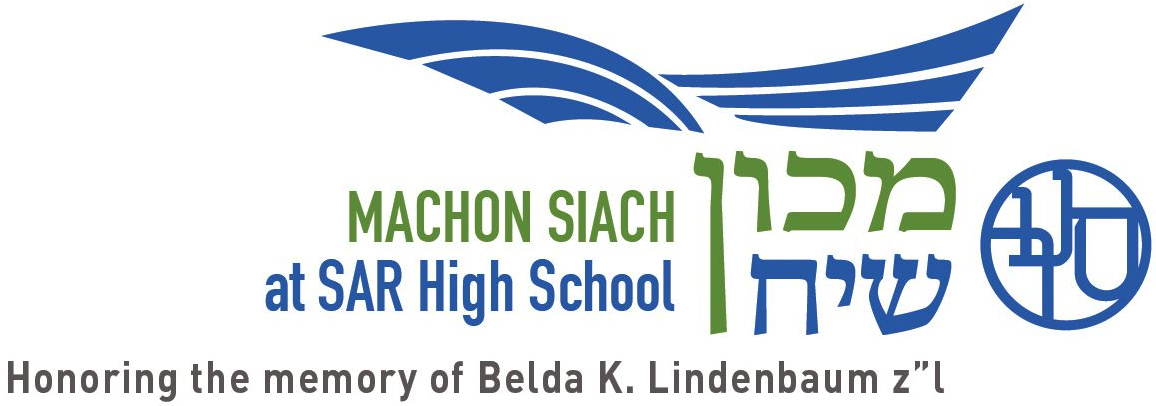
Piha Patcha B’Chochma — Her Mouth is Opened With Wisdom
In SAR High School, we teach a year-long course to our 10th graders in gender-separate classes. In the first half of the year, we cover Torah sources and Jewish values around sex and sexual behavior; in the second half of the year, we teach health. In both parts of the year, we practice the SAR mission statement’s commitment to the Grand Conversation, including contemporary medical and psychological information, while addressing both halakhic expectations and Jewish ethics.
As part of the second-semester health curriculum, I was addressing some basics of taharat hamishpacha with my tenth-grade girls. Since we already addressed the underlying halakhic framework in the first half of the year in Beit Midrash, I was speaking to them about some of the more practical details of mikvah immersion. They had a lot of great questions: what if I just got my hair keratin-ed? (Unfamiliar with the procedure, I didn’t understand how it would affect immersion. They clarified.) What if I broke my leg and am wearing a cast? What if I have a bracelet I never take off? What if I recently got a piercing and can’t remove it for six weeks? What if I got permanent ink on my hands?
I answered the questions I knew the answers to. For the ones I didn’t, I kept saying, “When the time comes, you’re going to address these questions to a competent halakhic authority. You can ask your local Orthodox rabbi, and you can turn to anyone who knows these halakhot well enough to answer. It might be a kallah teacher, like Ms. Taubes or Ms. Klatt. It might be a woman who has studied halakha at a more advanced level, like Rabbanit Schlaff or Yoatzot Halakha Ilana Gadish or Zissy Turner.” And then I told them, “I’m enrolled in a rigorous halakha study program for women. We’ve studied Shabbat and aveilut; this year we’re doing issur v’heter (laws of kosher/milk and meat.) Next year, we’ll study the laws of taharat hamishpacha. And after that, I’ll be able to answer more of your questions.”
When I committed to being a participant in the inaugural cohort of the Midreshet Lindenbaum International Halakha Scholars for women, I did so with some trepidation about the time commitment of eight hours a week for four years. (My father, whom I dearly love, is always good for keeping me from getting too full of myself. “Only eight hours a week? I would have thought more.” Abba, I have five kids, a very full time job, and one or two other things going on.) Eight hours a week for four years was a daunting commitment. But I had a simple motivation in wanting to do it: I am a reasonably intelligent person who received an excellent Jewish education and who has been observing halakha her entire life. And yet my students would approach me on Shabbatonim with halakhic questions about Shabbat in the hotel that I was not equipped to answer. As I referred the students to one of the rabbis on staff to get an answer, I wished that I knew more. When Midreshet Lindenbaum offered the opportunity, despite all of my trepidation, I jumped in.
I could wax effusive about all of the wonderful things I have gotten out of my participation in this program. As someone who had never learned Torah sheb’al Peh formally, and had never learned halakha rigorously from the sources, I found my eyes open to entirely new appreciation of Torah learning and of the halakhic process. My chavruta, who lives 45 minutes away from me and whom I have met in person twice, became a dear and beloved friend, as well as a much-valued learning partner.
But there was another benefit I did not anticipate. Beyond not having to defer to others with more Jewish learning than I, and beyond showing my students that women, too, can have a learner’s mastery of halakha, I showed them something else: that learning Torah is something we do all of our lives, that we don’t stop because we get older or busier or our powers of memory aren’t what they once were. (Oh, for the memory I had when I was 17!)
A colleague at SAR told me that she had just completed the OU Women’s Initiative Nach Yomi study with her mother and had participated in the siyum held in Teaneck. She told me in confidence; she didn’t want anyone to know. (She is not a Judaic Studies teacher and not the “usual suspect” when it comes to intensive learning, and she shuns the spotlight.) I told her how important I thought it was that she let our students know. For girls and boys to see that the adults around them – women and men, the usual suspects and the not-usual suspects, the Judaic Studies teachers and the general studies teachers, the health teachers and the administrators – engaging in serious Torah study as adults with busy and demanding lives is a powerful role modeling. My colleague agreed to hang her completion certificate from Nach Yomi up in her office. She doesn’t want it announced, but she’s allowing the certificate hanging on the wall to serve as a conversation starter.
When our students see the adults around them learning – not preparing for class, but doing our own learning – Gemara and halakha, machshava and chasidut, we don’t just say that learning Torah is a life-long pursuit. We live it. Growing in our mastery and understanding is a goal, a practice, a source of joy, and a mitzvah. We may change what we are drawn to learning, or when we learn, or even how much our brains retain. But it is Torah, and we must learn it.


